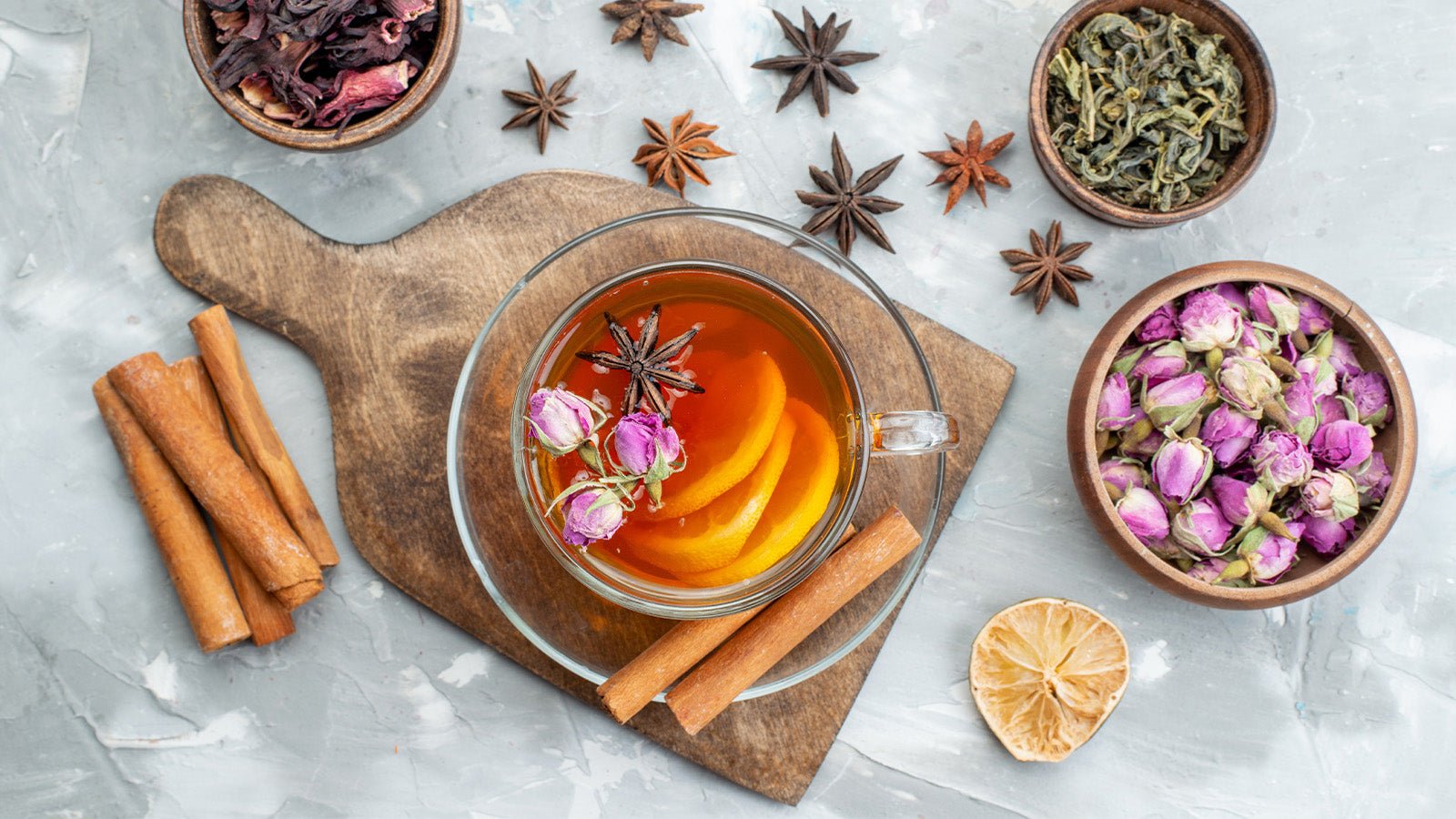Introduction
Herbal teas have been cherished across cultures for centuries, offering a delightful combination of flavors and health benefits. Unlike traditional teas derived from the Camellia sinensis plant, herbal teas are infusions made from various parts of plants, including leaves, flowers, seeds, and roots. They are naturally caffeine-free and are often consumed for their therapeutic properties.
What Is Herbal Tea?
Herbal tea, also known as a tisane, is a beverage made by steeping plant materials in hot water. These teas are distinct from "true" teas (black, green, oolong, and white) as they do not originate from the Camellia sinensis plant. Instead, they encompass a wide range of ingredients, each imparting unique flavors and health benefits.
Health Benefits of Herbal Teas
Herbal teas are more than just comforting beverages. They offer various health advantages that make them a wonderful addition to your daily routine:
Digestive Support
Herbal teas like peppermint and ginger are well-known for alleviating digestive discomfort, reducing bloating, and soothing the stomach.
Immune Enhancement
Teas infused with echinacea and elderberry can help strengthen the immune system, offering natural defense against common illnesses.
Stress and Sleep Aid
Chamomile and lavender teas are valued for their calming properties, which help reduce stress and promote restful sleep. They are ideal choices before bedtime.
Anti-Inflammatory and Antioxidant Properties
Ingredients like turmeric and hibiscus contain compounds that combat inflammation and oxidative stress. Regular consumption may contribute to reducing the risk of chronic diseases.
Heart Health
Hibiscus tea, in particular, has been associated with lowering blood pressure and cholesterol levels, thus supporting cardiovascular health.

Popular Herbal Teas and Their Benefits
Chamomile Tea
Chamomile tea is renowned for its gentle, floral flavor and calming effects. It is often consumed to reduce anxiety, support digestive health, and promote better sleep.
Peppermint Tea
Refreshing and cooling, peppermint tea helps relieve digestive issues, ease bloating, and may alleviate headaches and improve mental clarity.
Ginger Tea
Ginger tea offers a spicy taste and is widely used to combat nausea, especially during pregnancy or while traveling. It also supports digestion and has potent anti-inflammatory effects.
Turmeric Tea
Turmeric tea, often paired with black pepper to enhance absorption, provides powerful anti-inflammatory and antioxidant benefits. It supports joint health and overall immunity.
Hibiscus Tea
With a tart, cranberry-like flavor, hibiscus tea is loaded with antioxidants. Studies suggest that it helps lower blood pressure and cholesterol, promoting better heart health.
Choosing the Right Herbal Tea
When selecting herbal teas, keep in mind the following tips:
-
Quality: Choose teas made from organic and non-GMO ingredients to ensure the highest purity and potency.
-
Purpose: Define your health objectives. Whether you're aiming to improve digestion, relieve stress, or boost immunity, select teas that align with those needs.
-
Flavor Preferences: Herbal teas come in many flavors. Explore different varieties to find the ones that delight your palate.
Brewing the Perfect Cup of Herbal Tea
To maximize the benefits and enjoyment of your herbal tea:
-
Use Fresh Water
Always start with cold, fresh water to ensure the best flavor. -
Proper Temperature
Heat the water to the ideal temperature, usually between 90–95°C (194–203°F), for herbal teas. -
Steeping Time
Steep your tea for about 5–10 minutes, depending on your preferred strength and the type of herbal tea. -
Enhancements
For a personal touch, consider adding natural sweeteners like honey or lemon, but avoid excessive sugar to keep the drink healthy.
Final Thoughts
Incorporating herbal teas into your lifestyle can offer more than just enjoyable flavors. They present a natural way to support health and wellness in various forms, from aiding digestion to calming the mind and even supporting heart health. With such a broad spectrum of benefits and flavors, herbal tea is a wonderful daily companion.
Remember, while herbal teas are generally safe, it is wise to consult with a healthcare professional if you have specific medical conditions or are taking medication. Explore the world of herbal teas today and discover the power of nature in every sip.



Share:
Herbal Tea Benefits: Unlocking Nature's Wellness Secrets